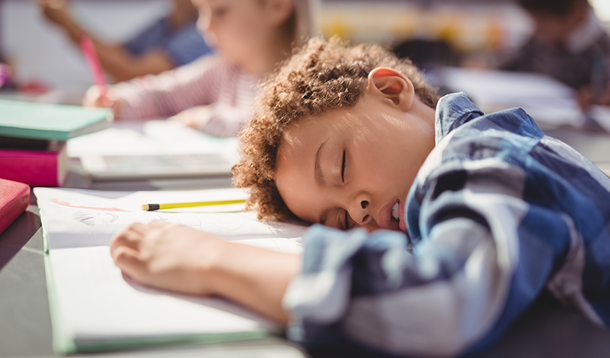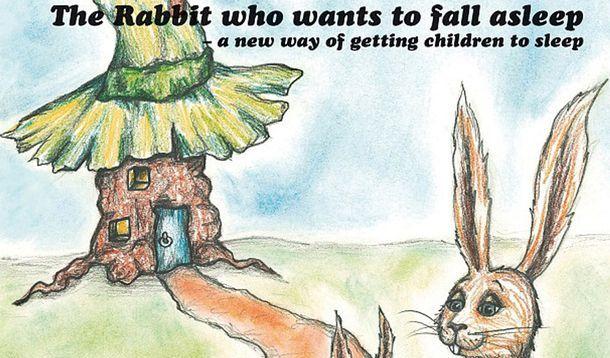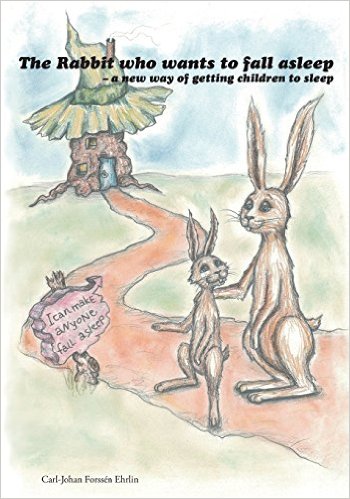
While the summer brings us endless days and fun family trips with sun, surf, and sand, it also can take away your family’s usual sleep routine. For two months, bedtimes are pushed out later, and morning lay-ins are the norm. It’s not surprising that when kids head back to school, they struggle to get back into their routine—and everyone feels it.
A well-rested child will display better cognitive abilities, a more pleasant mood and temperament, and a stronger immune system, so it’s important that your child start off their new school year well rested and prepared.
How can you help your kid’s transition back to school easy and with less upset?
When consistently communicating the importance of anything with your children, there is a better understanding of why steps and/or changes need to happen. It’s important that parents don’t just tell their child that they need to go to bed, but why they need to go to bed. Ask them the questions – “how do you feel when you’ve had a good night of sleep?” and “how do you feel when you haven’t had a good night of sleep?” Explain to your child how happy you are when you are able to spend time with them at bedtime, especially when it’s a peaceful experience, and how great mom and dad feel when you are well rested too. Opening communication about the importance of sleep and making it a priority in your home will help establish a healthy relationship between sleep and your child that they will continue to have as adults.
In order to properly communicate sleep needs to your child, parents need to understand the age-appropriate sleep needs of their children. In February, 2015, The National Sleep Foundation recommended new nightly sleep durations for all ages:
Preschoolers (3-5): Average sleep time - 10-13 hours per night. I recommend an age appropriate bedtime of 7-7:30pm.
School age children (6-13): Average sleep time - 9-11 hours per night. I recommend an age appropriate bedtime of 8-8:30 pm.
Teenagers (14-17): Average sleep time - 8-10 hours. I recommend encouraging bedtime starting at 9:30-10pm. Bedtime would depend on school start time or morning activities.
I hate to break it to you, but getting back to your family’s usual sleep routine isn’t a walk in the park for mom or dad either. Your own sleep schedule has been neglected, so it’s important that you also make changes to get back on your own sleep track. When your children witness you making those changes, they’ll be more willing to follow suit.
You need to reset your child’s internal clock back to their school routine. Have your child go to sleep and wake up at the same time every day—as they will once they go back to school. Even on weekends, you shouldn’t stray more than an hour or so from bedtime.
Quick Tip! Starting a new school year can be a major transition for your child, especially for the little ones who are entering their first year of Junior Kindergarten. Full Day/ Every Day school can be exhausting for their little bodies, so for the first month or so make sure bedtime is nice and early, perhaps earlier than usual, until they’ve adjusted to their new routine.
Begin implementing your consistent bedtime routine again with enough time for it to be a relaxed experience. Not only does a consistent routine prepare your child for sleep, it allows you and your child to have some quality one-on-one time that often get’s lost in the mad dash of your day-to-day.
Switch up your child’s usual bedtime story with colouring! Colouring with your child at bedtime is a great opportunity to connect with your little one after a busy day and ask those open ended questions that will likely get you more of a response then the usual “good” and “fine.”
An hour before bedtime, it’s time to wind down stimulating activities—like TV, computer games, and Internet usage—which can make it hard for children (and parents!) to calm down before bed and cause sleep problems. Keep tech out of the bedrooms and instead create a family docking station where everyone can plug in overnight.
Quick Tip! Give your child a 10-15 minute warning before getting ready for bed so they are prepared and know what to expect.
Watch your child’s caffeine intake throughout the day. Avoid soda, chocolate, and ice tea in the late afternoon and at dinnertime.
Between homework, sports, activities, and parents wanting to spend time with their kids, here are a few steps you can take during the school year to make sure your child remains well-rested and not over-scheduled:
1. Schedule your child’s extra activities carefully. If evenings are tough and rushed, then opt for a weekend class where your child will feel more rested taking it and you won’t be rushed to get there.
2. Watch for signs of burnout. Watch your child’s participation during their activities. Yawning and dragging their feet can be signs that they’re tired.
3. It’s okay to have one day off. Try to choose one day on the weekend, for instance, to be your family’s day off. Don’t schedule any activities, hang out with the kids, and have some quality bonding time. They need a day to relax before the week starts up again, and so do the parents.

When a new way to help your child fall asleep is announced in the media, the parenting world holds on for dear life and every sleep-deprived, caffeine fueled parent runs to the quickest store, and in this case the bookstore, in hopes that this is going to be the solution to the constant bedtime battles in their home. As a sleep professional, when new sleep aid products hit the market I feel it’s my job to check them out and research them as time and time again parents come to me in need of help after spending money on these aids that offer false hope and zero sleep.
The Rabbit Who Wants to Fall Asleep, written by Carl-Johan Forssén Ehrlin, is a children’s bedtime book, titled “a new way of getting children to sleep.”
It’s the story of Roger the rabbit whose family is helping him fall asleep. The book is written with the intent to relax and calm your child at bedtime using psychological techniques where parents are encouraged to talk in soothing tones, emphasize certain words or sentences, and even yawn throughout the story. Many parents in my own sleep community were contacting me and asking me my opinion on the book and this book peaked my interest as I believe in incorporating relaxation techniques into family members bedtime routine and day-to-day life.
So I bought it and read it.

And here you have my Snoozes and Loses on The Rabbit Who Wants To Fall Asleep.
The Snoozes (aka the good sleep stuff)
The characters in the book, being animals, make the story interesting to children and incorporating a relaxing routine as part of your child’s bedtime is always a good idea. This book can help you do just that. The story allows the child to prepare for sleep and while it teaches Roger the rabbit why he needs to sleep and how to fall asleep it in turn can teach your child the same. Any form of relaxation technique - breathing exercises, mindfulness, yoga - is a positive addition to your child’s routine at night, even your child’s day-to-day, provided it’s something that is practiced daily within your household. Which brings me too…
The Loses
Unless you are spending at least 10 minutes a day with your child, teaching them how to incorporate calming and relaxing behavior, in whatever form, it’s not going to stick. It’s like learning any new habit or behavior, until we make it part of our child’s nightly regime, bedtime is not likely going to go as easy as this books states it will. I think this book can work very well for an already strong independent sleeper who every now and then needs a bit of help falling asleep at night and whose parents perhaps want to start incorporating other relaxation techniques into their sleep toolbox. But the problem I have with this book is it’s being promoted as the quick fix you need and if you are a parent who is really struggling with your child’s sleep and have been for sometime now this book is not your answer.
It may act as a band-aid solution for your child’s bedtime behavior for a few nights. Maybe even a week or so, but if you don’t have solid sleep habits in place things will unravel very quickly. That I can guarantee. Before downloading or purchasing this book work on the following with your toddler:
Unfortunately in order to make changes you may have to make some not-so-fun ones at bedtime, and reading one book isn’t your solution. Once everything above is in place and bedtime has become easier then I encourage you to create a toolbox of relaxation techniques for your child and The Rabbit Who Wants to Fall Asleep can be a great addition to that.
I provide free child and family sleep support on my Facebook page. I invite you to join our sleep community as I work towards Good Night Sleep Site's mission of a healthier rested family unit. For more sleep tips please visit Good Night Sleep Site and visit me on Instagram and Twitter. Join our movement and #BringBackBedtime.
Image Source: Carl-Johan.com
![]() RELATED: What To Do When Your New Baby Won't Nap
RELATED: What To Do When Your New Baby Won't Nap
Maybe it’s a sign of the times, but conversations around the water cooler are now more about how one slept the night before instead of being about the latest television show or office gossip, With the popularity of sleep trackers on the rise, everyone is suddenly interested in the quantity and quality of their sleep. Products like Fitbit, Jawbone, and Nike Fuel are being found in households everywhere, with tracking sleep patterns as one of their top features. As a sleep expert, this growing trend is something I felt I had to research. I’m witnessing the information obtained from these devices being used as a medical diagnosis for some people and I question the accuracy of data that customers are becoming dependant on.
Tracking our health is on the rise on a number of fronts. These fitness trackers do more than just count steps – whether it is nutritional intake, energy expenditure, or our sleep health, more and more people are following the ‘quantified self’ movement (Shull et al., 2014) for a couple of good reasons.
Becoming more involved in your day-to-day health suddenly gives you the motivation and control to remain consistent in making changes. Information empowers us to make better decisions towards a healthier lifestyle. As the popularity of sleep trackers increases, suddenly those in your circle are also using them and it allows the conversations to begin. Tips and healthy competition spark the motivation to continue towards a better-rested path. Knowledge is strength and even the knowledge that your sleep habits are being tracked may help inspire you to improve your sleep hygiene.
A friend of mine bought a sleep-tracking device for their mother who felt like she was always struggling with sleep. She questioned how restorative her sleep was throughout the night and how much sleep she actually got. Often we can create more sleep issues or heighten existing ones when we don't have a positive relationship with sleep. Thinking negatively of our sleep hygiene or constantly worrying about our sleep health can be the cause of poor sleep health. When my friend’s mother began to track her sleep, the data showed that she was actually getting more restorative sleep than she thought. This information helped her re-establish a more positive relationship with sleep, which in turn made it easier for her to fall asleep at night and follow more consistent sleep patterns.
The issue I have with these companies is that many are being marketed (though not by flat out saying it) as medical devices and this is misleading the consumer. Claiming that sleep tracking devices accurately monitor sleep quality and can help those suffering from insomnia and other sleep disorders is dangerous. What we as consumers need to understand is that these are not medical devices and are not FDA approved. In order to get accurate information and a proper diagnosis of your sleep patterns and sleep health you must have your brain waves monitored through an electroencephalography (EEG) sleep study, while also monitoring eye movement and muscle tone. Simply knowing the amount of times you move throughout the night does not give you an accurate reading of the amount of deep sleep vs. light sleep you get. You are capable of moving the same amount of times no matter what stage of sleep you are in. Some people move a lot during the night and still get restorative sleep, while others don’t move at all and still sleep very lightly. You should not rely on these devices to tell us what stage of sleep you are in.
If you are showing signs of a sleep disorder or feel that there is an underlying health issue it’s important to speak with your doctor who can order a sleep study to find out what’s going on.
There is also the possibility that these devices are overestimating sleep quantity. When these companies aren’t suing each other, consumers are suing them. A recent lawsuit filed against Fitbit stated that their devices overestimated sleep by 67 minutes. While Fitbit plans to defend this claim, if this is in fact true it can have major health repercussions on an individual if they believe they are getting an extra hour of sleep when in fact they aren’t.
Finally, while we see that these devices can improve our relationship and positive thinking towards sleep, it’s important to remember that the opposite can happen as well. As I explained above many cases of chronic insomnia are not only due to poor sleep hygiene but also on the individual’s beliefs on the sleep they’re getting. The data that these devices are capable of showing can further ones negative thoughts on their sleep health. While we want those struggling with insomnia to focus on positive affirmations regarding their sleep such as “I slept better last night”; suddenly their thoughts focus on “I knew I was a terrible sleeper” or “It’s not getting better and I’ll never sleep well”. Unless you have the proper support to help you with your sleep issues it’s difficult to re-establish your positive relationship with sleep when the data is constantly showing you the issues you have (or think you have).
While an official statement has yet to be released from the American Academy of Sleep Medicine on the subject of sleep trackers the following statement was written to me as a general consensus within the organization:
“Sleep apps and sleep tracking devices (fitbits, etc.) have positive benefits, getting you to think more about the quality of your sleep and increasing your understanding of how important sleep is to overall health. Although data from sleep apps/trackers can be useful, this information is less accurate than the data gathered during a sleep study. Current technology is limited in its ability to diagnose a sleep disease. Patients should discuss their sleep data with their doctor and should see a sleep specialist to get help for an ongoing sleep problem.”
This is the tip of the iceberg, we are going to be seeing more and more health focused technology on the market that helps consumers be more aware of their overall health. This is a great thing. No one is more pleased than I am to finally start seeing sleep health on the forefront of importance in one’s lifestyle. I have many of these devices to thank for that. When done right, the data compiled from these devices can help take sleep research to the next level. People will take more control of their day-to-day lifestyle and hopefully stay motivated to live a more balanced life but it’s important that doctors, specialists, and experts stay up-to-date on the gadgets and apps that are out there so that they can inform patients of the data they should be paying attention to. If you are using one of these sleep trackers it means that you are paying more attention to your sleep health but if you feel that you are struggling with consistent sleep issues or a sleep disorder you shouldn’t be relying solely on the data obtained from a sleep tracker to self-diagnose. My recommendation is to make an appointment with your doctor and have a proper sleep study done.
False reassurance can be dangerous.
I provide free child and family sleep support on my Facebook page. I invite you to join our sleep community as I work towards Good Night Sleep Site's mission of a healthier rested family unit. For more sleep tips please visit Good Night Sleep Site and visit me on Instagram and Twitter. Join our movement and #BringBackBedtime.